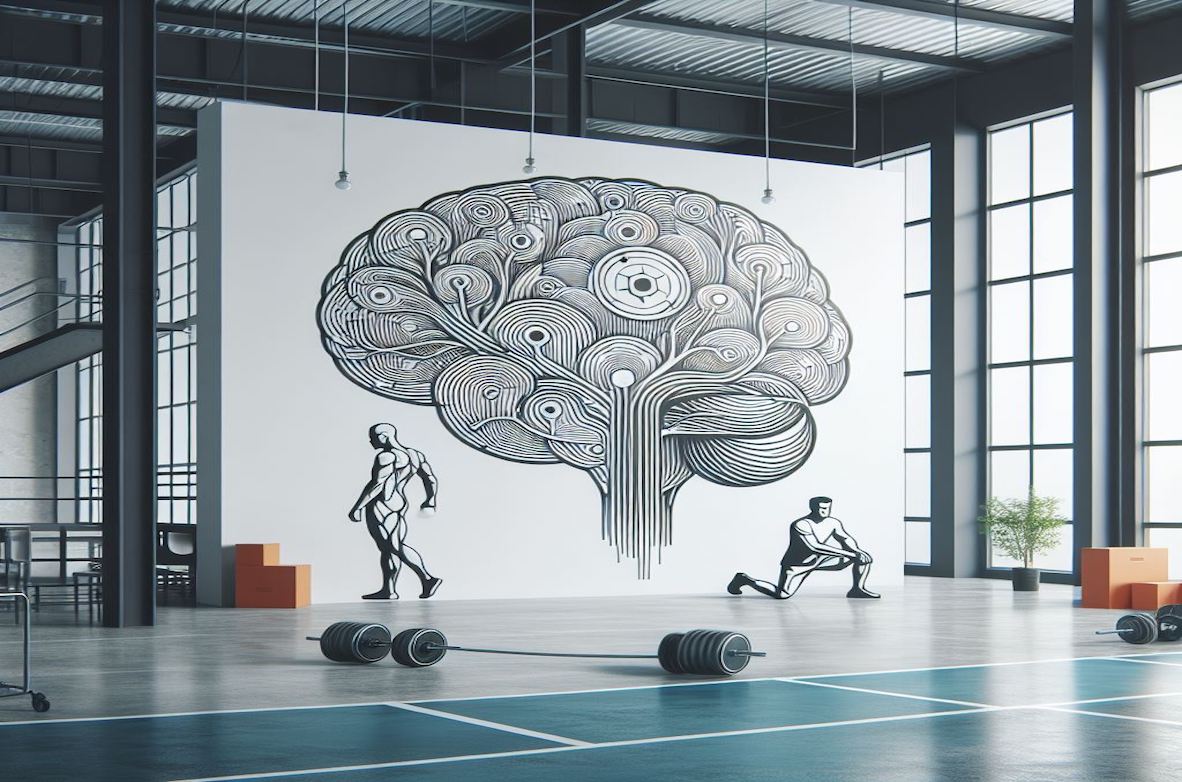Applying Cognitive Training to Become a Better Athlete
In the competitive world of sports, physical prowess alone is no longer enough to secure victory. Athletes increasingly recognize the importance of cognitive training to enhance their mental game, optimize performance, and gain a competitive edge. Cognitive training, also known as mental conditioning, involves exercises and techniques designed to improve mental skills such as focus, decision-making, and stress management. This article explores how athletes can apply cognitive training to elevate their performance.
Written by Genius Gyms - May 2024

The Importance of Cognitive Training
Cognitive skills are crucial for athletes in various ways:
- Focus and Concentration: Maintaining attention on the task at hand, whether during practice or competition, can significantly impact performance.
- Decision-Making: Quick and effective decision-making is essential in fast-paced sports environments.
- Stress Management: The ability to manage pressure and anxiety can prevent performance deterioration during critical moments.
- Mental Resilience: Developing mental toughness helps athletes recover from setbacks and maintain a positive mindset.
Key Cognitive Training Techniques
-
Visualization and Imagery
Visualization involves creating mental images of successful performances. Athletes can use this technique to rehearse movements, strategies, and scenarios. Imagery helps in:
- Improving muscle memory by mentally practicing skills.
- Enhancing confidence by visualizing successful outcomes.
- Reducing anxiety by preparing for various game situations.
How to Practice:
- Find a quiet space and close your eyes.
- Visualize yourself performing specific skills or techniques flawlessly.
- Include all senses: imagine the sounds, smells, and feelings associated with the performance.
-
Mindfulness and Meditation
Mindfulness involves staying present and fully engaged in the current moment. Meditation practices can help athletes improve focus, reduce stress, and enhance emotional regulation.
How to Practice:
- Set aside a few minutes each day for meditation.
- Focus on your breathing, and let go of any distracting thoughts.
- Practice being present during training and competitions, paying full attention to your movements and surroundings.
-
Goal Setting
Setting clear, achievable goals can provide direction and motivation. Goals should be specific, measurable, attainable, relevant, and time-bound (SMART).
How to Practice:
- Identify short-term and long-term goals.
- Break down long-term goals into manageable steps.
- Regularly review and adjust goals based on progress and feedback.
-
Cognitive Behavioral Techniques (CBT)
CBT involves identifying and changing negative thought patterns that can hinder performance. Techniques such as positive self-talk and reframing negative thoughts can boost confidence and mental resilience.
How to Practice:
- Monitor your self-talk during training and competition.
- Replace negative thoughts with positive affirmations (e.g., "I am prepared and capable").
- Practice reframing by viewing challenges as opportunities for growth.
-
Neurofeedback Training
Neurofeedback involves using real-time monitoring of brain activity to train the brain. It can help athletes improve focus, relaxation, and emotional regulation.
How to Practice:
- Work with a professional who can provide neurofeedback training.
- Use feedback from brain activity monitors to learn how to achieve optimal mental states.
Integrating Cognitive Training into Athletic Practice
To effectively incorporate cognitive training into your routine, consider the following tips:
- Consistency: Regular practice of cognitive techniques is key to seeing benefits. Integrate mental exercises into daily training sessions.
- Professional Guidance: Working with a sports psychologist or mental performance coach can provide personalized strategies and support.
- Holistic Approach: Combine cognitive training with physical training, nutrition, and rest for overall performance improvement.
- Reflection: Regularly assess the impact of cognitive training on your performance. Adjust techniques as needed to address specific challenges.
Conclusion
Cognitive training offers athletes a powerful tool to enhance their mental game and overall performance. By incorporating techniques such as visualization, mindfulness, goal setting, CBT, and neurofeedback, athletes can improve focus, decision-making, stress management, and mental resilience. As the importance of mental skills in sports continues to grow, cognitive training will remain an essential component of athletic development and success.
By embracing cognitive training, athletes can unlock their full potential, not just physically but mentally, paving the way for peak performance and a competitive edge in their sport.
Genius Gyms can help unlock that potential via the app and via our coaching service - Learn More
